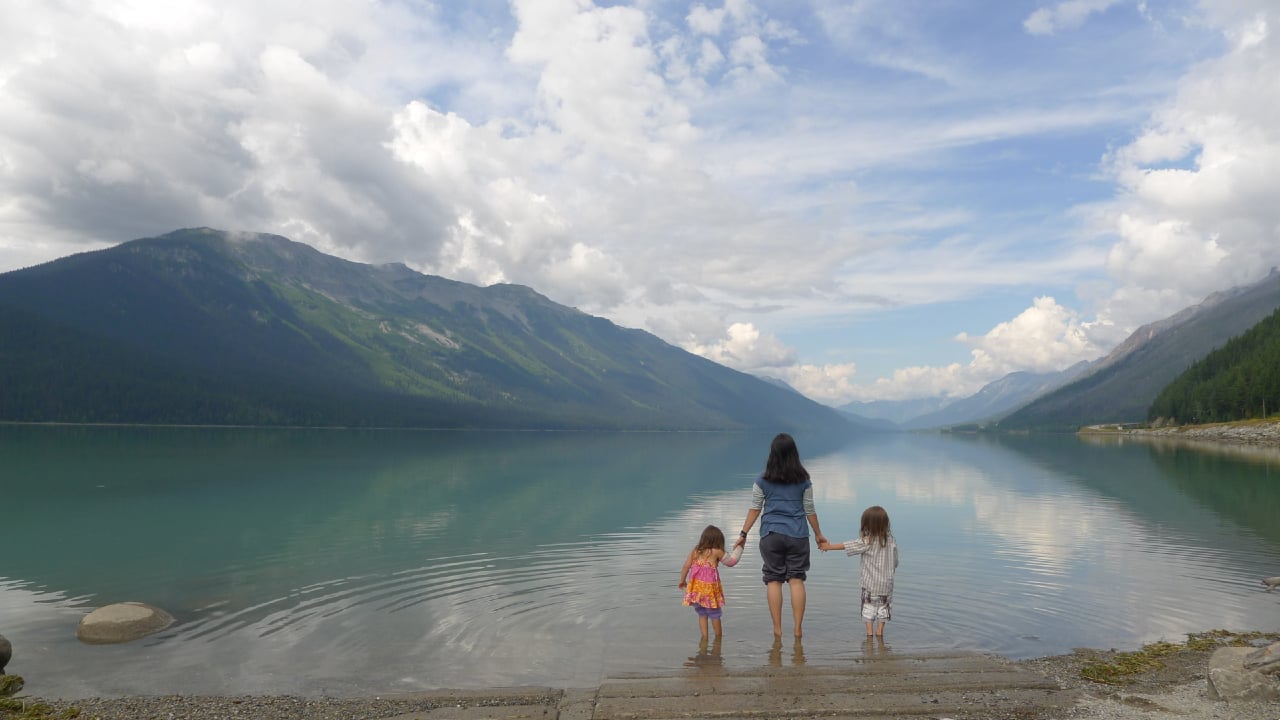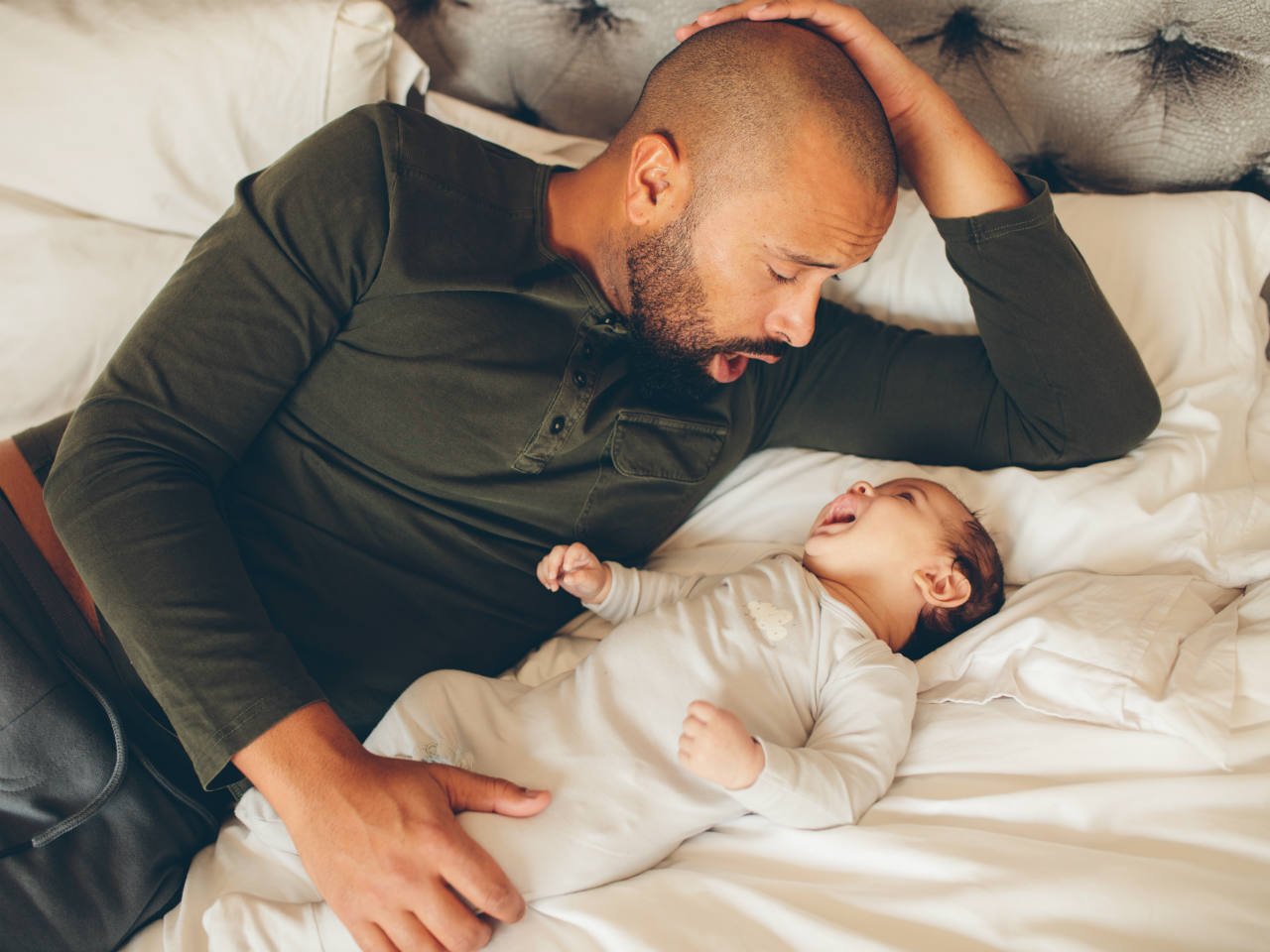I worried that driving from coast to coast with three littles (including a six-month old) might be a mistake. Here are all the tips and tricks you’ll need to survive.
When we left Vancouver Island for the Maritimes, every inch of our SUV was packed solid. We had to stack clothes around the kids so high that we couldn’t open the back doors. At the first stop, we lifted our little ones out through the windows, amusing all the passengers of the tour bus beside us. To myself, I repeated the mantra: “You will never see these people again.”
Even though a road trip across Canada had been on our bucket list for years, neither of us had imagined it with three kids (age four, two, and six-months-old). I questioned the wisdom of the idea and expected the baby to cry the whole 7000+ kilometres across the country. Here’s what we learned.
Plan travel according to naps and play stops
Each day while the kids had breakfast, we’d pack up and leave in time for baby’s first nap. We’d travel for two hours or until he fussed; then we’d stop at the closest park or beach for lunch and let the kids play and run off their energy. Two hours later, babe would be ready for his second nap and another couple hours of travel before setting up camp for the night. If we needed to go for a few more hours, kids would get in their PJs and back in their carseats.
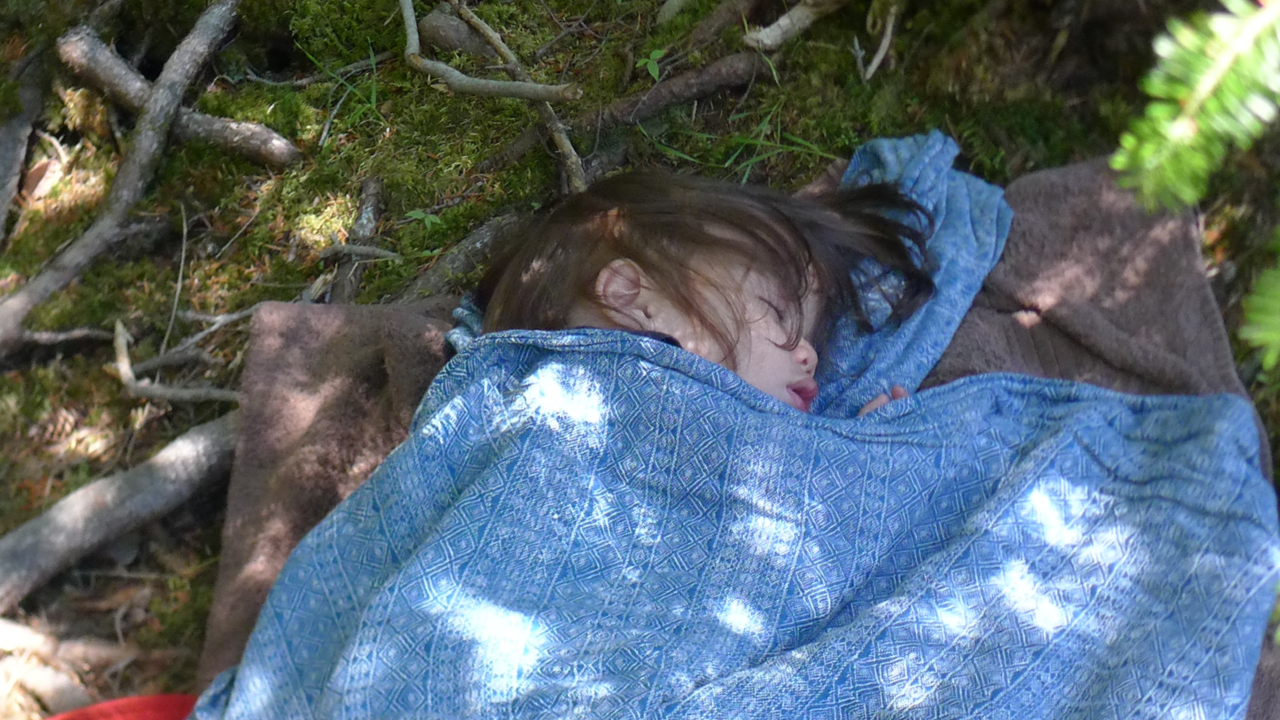
Napping across Canada looks different every day. Photo: Courtesy of Annie B. Smith
We capped travel days at four to six hours and travelled during baby’s nap times. I made a list of available campsites that were approximately that distance away, being sure to note backups. We booked weekend sites ahead of time to ensure spots but used first-come-first-serve sites for the rest to have some flexibility. We spent a day or two at each site for play and exploring and made our way through a bucket list of must-see destinations.
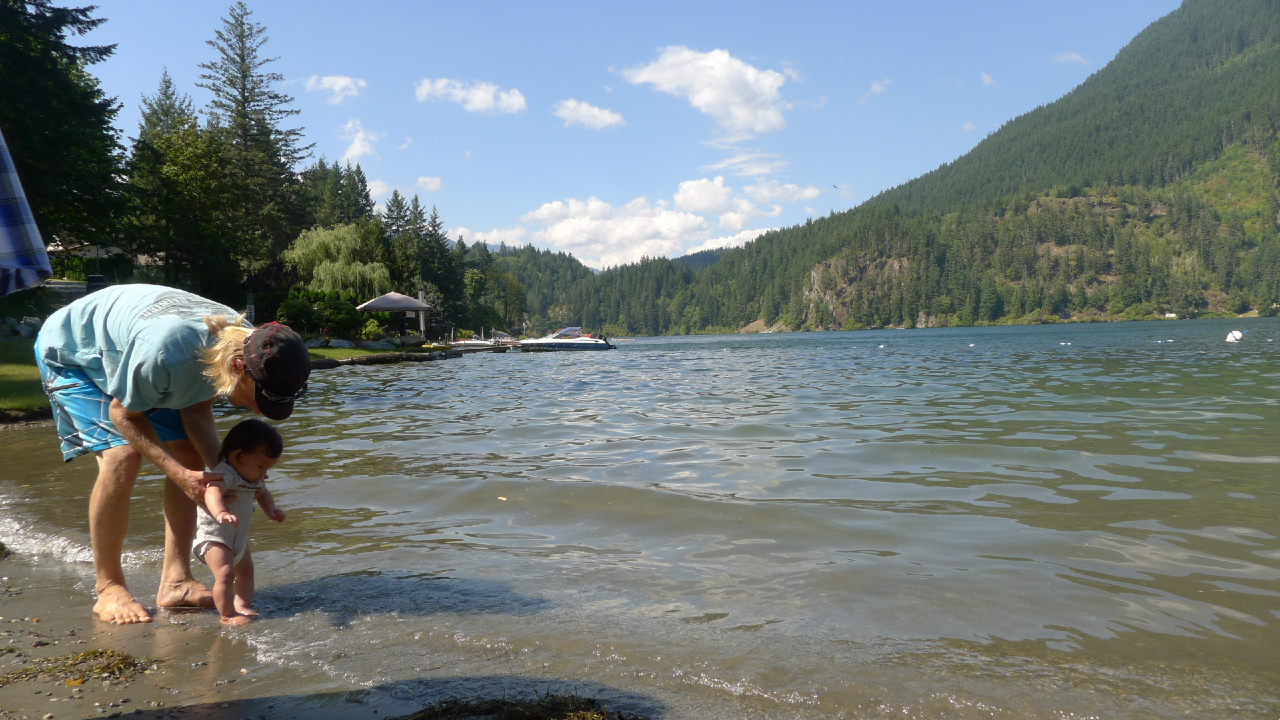
Relaxing at Kawkawa Lake, Hope, BC. Photo: Courtesy of Annie B. Smith
Find your routine
We arrived at our campsite later than expected on our first travel day and the kids were hungry. Tempers were short as everyone was rattled and we frantically tried to find everything to get supper ready and the tent setup. Lesson learned: Choose easy-to-reach and permanent spots for essentials. The kids usually helped Daddy set up the tent while I made a quick packaged dinner on our travel days. Be kind (to yourself and others) until you find your rhythm.
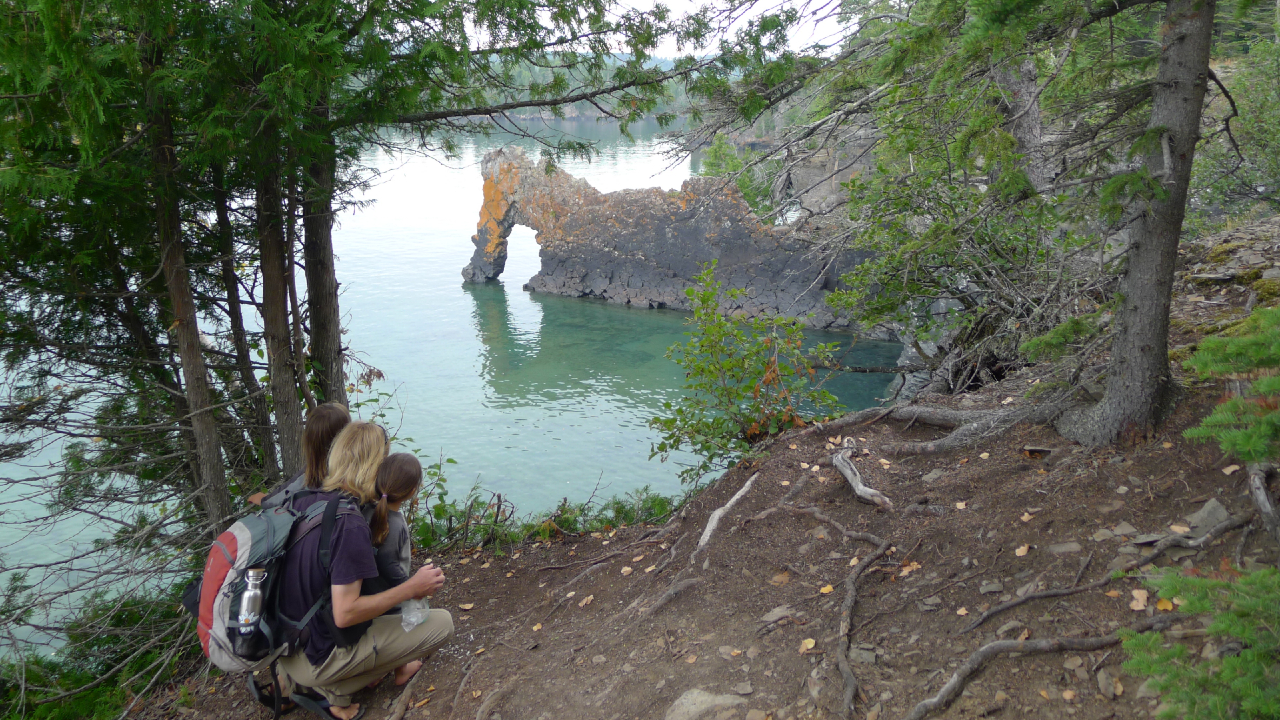
Hike to the Sea Lion, Sleeping Giant Provincial Park, ON. Photo: Courtesy of Annie B. Smith
Embrace the mess
Our cloth-diapering family opted for disposables for the trip, but found our wet/dry bags (or even zippy bags) useful for swimsuits and laundry to control odours. (Many eastern provincial campgrounds offer laundry facilities; we carried space-saving eco-strip detergent like Tru-Earth.) Save and reuse all plastic bags for diapers and garbage so you don’t have wrappers and coffee cups strewn all over the car. Some families may even find a small portable potty handy for when nature calls. A vinegar solution in a small peri-wash bottle is great for rinsing and disinfecting the potty, “accident” sites and little hands.
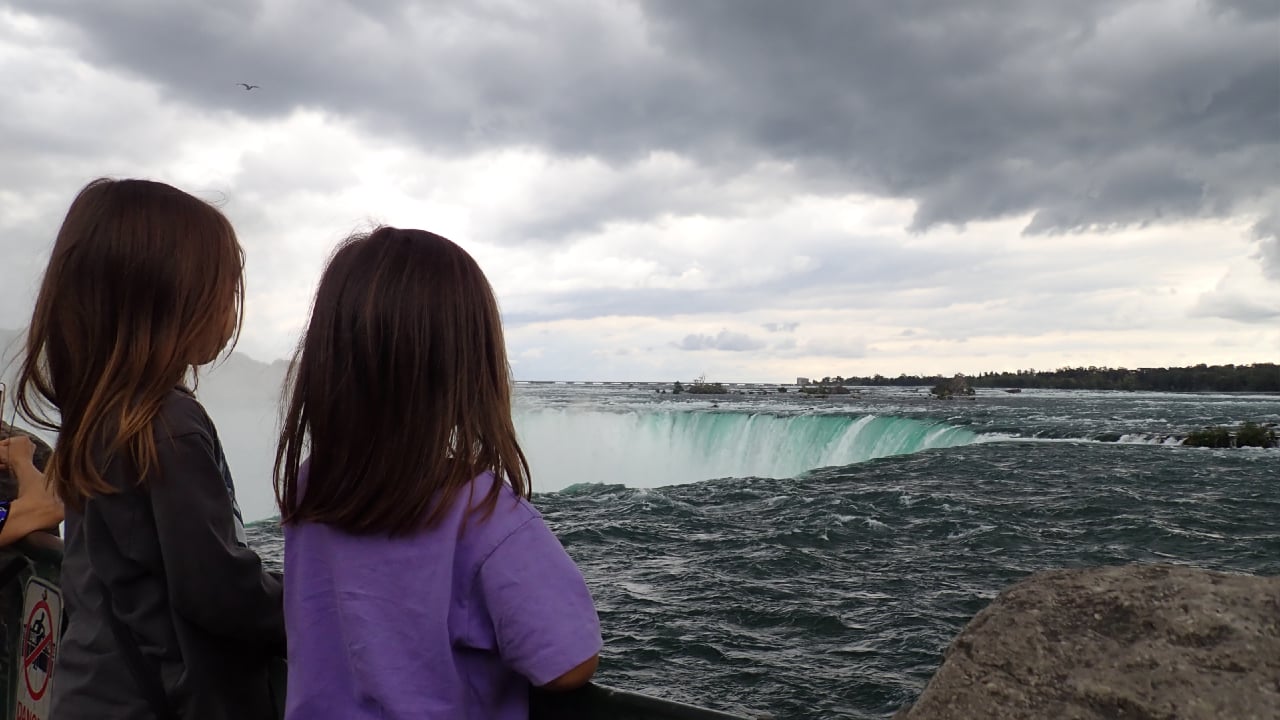
The great Niagara Falls, ON. Photo: Courtesy of Annie B. Smith
Think outside the box
As a screen-free family, we read chapter books and downloaded audiobooks (Try Audible or your local library for free downloads) and podcasts (Wow In the World, Story Pirates, and Brains On are some of our faves). We made up silly stories and played games like I Spy, Would You Rather, colour bingo, and clapping games. Legos and Duplo in a shallow box were a hit with our kids. Activity and sticker books were essentials along with paint-with-water books, lift-the-flap books and an Etch-a-Sketch. Cookie sheets made great lap trays and were perfect for magnet play or as a stage for small cars and dolls.
Paper is magic; you can draw pictures for road bingo and play Tic-Tac-Toe. Paper planes, boats and simple origami animals became instant new toys. Playdoh, window markers and felt story sets are fun but so was a roll of masking tape, balloons, string, straws and tubes, tinfoil and pipe cleaners. Opening and taking random objects out of a bag was a hit with baby.
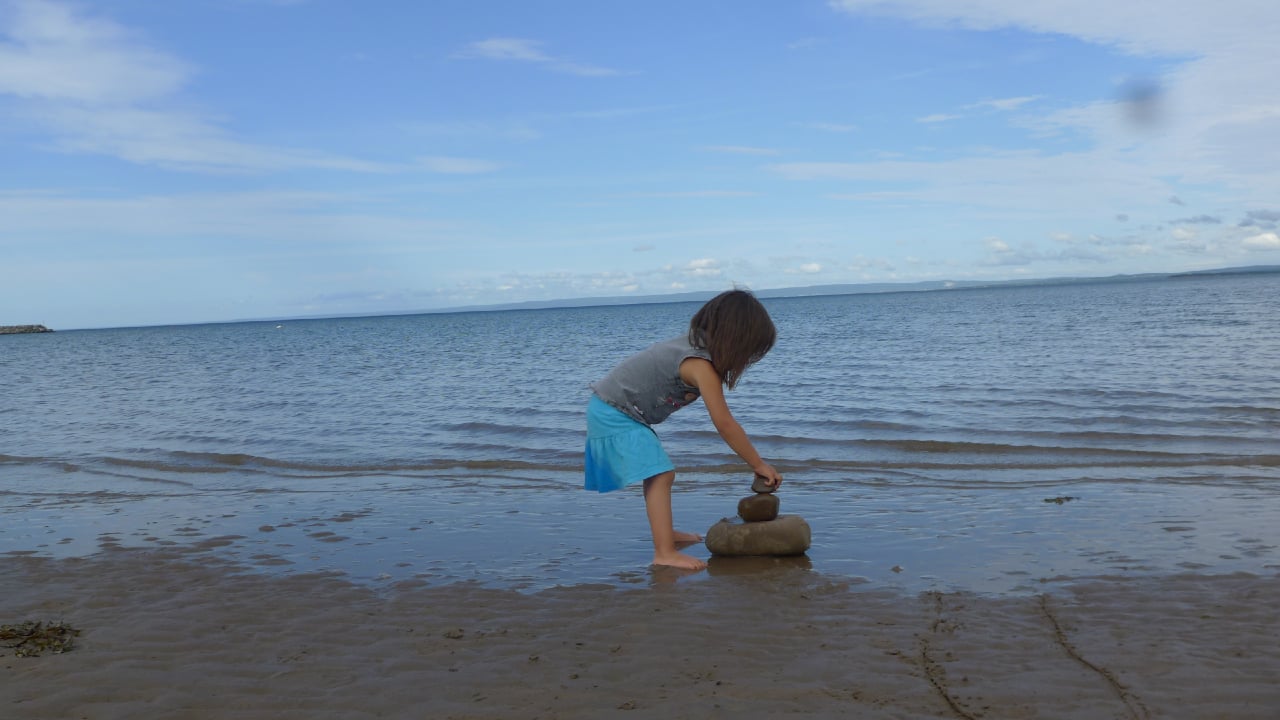
Balancing stones on a beach in Nova Scotia. Photo: Courtesy of Annie B. Smith
A new activity every half hour keeps things new. Blowing bubbles can diffuse cranky kids and sibling squabbles. When they’re getting really antsy, take a driving break. Pack balls and frisbees. Even 10 minutes can refresh a kid. When everything else fails: snacks.
Quick eats
With limited space, we kept food simple; oatmeal or cereal and fruit for breakfast, sandwiches for lunch, and pasta, pita pizzas or hotdogs for supper. Quick and easy snacks consisted of fruit, veggies, vegetable chips and applesauce pouches. A few spoonfuls of powdered coconut milk in a jar makes just enough milk for breakfast. And, I kept the produce, jam, and a bottle of salad dressing (more variety than mayo) in a small cooler and we’d refill with ice every two days. With the exception of roasting veggies, hotdogs, and marshmallows over a fire, kids are not going to remember what they ate 20 years down the road.
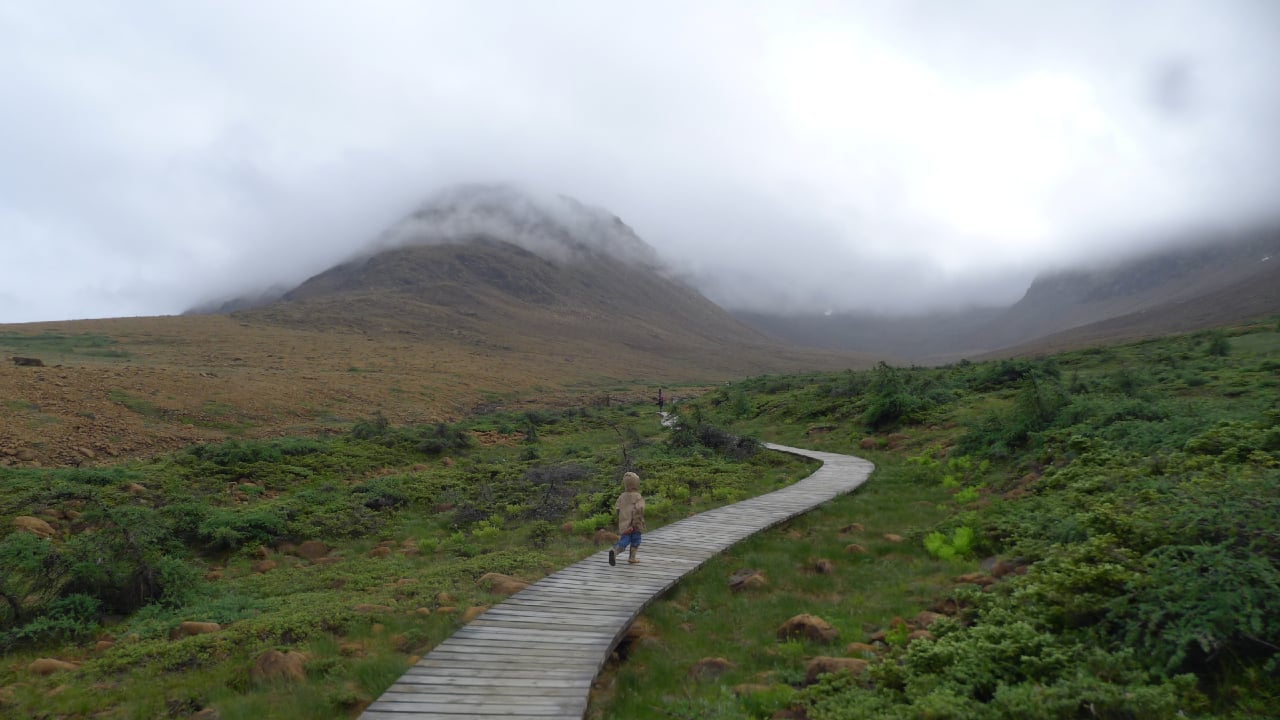
Exploring the Martian landscape at the Tablelands, NL. Photo: Courtesy of Annie B. Smith
Remember to have fun
Travelling means no housework and hopefully more quality family time. We hiked in the Canadian Rockies, played on Saskatchewan grasslands, waded through Manitoba lakes, explored sandy and slab beaches of Ontario, built sandcastles on the red beaches of PEI, and marvelled at icebergs in Newfoundland. The kids remember diving off rocks, swimming in caves, and seeing bears and moose. They don’t remember all the details, but this trip made them more resilient, adventurous, and appreciative of Canada—even our youngest, who’s seen the pictures and knows all the stories.
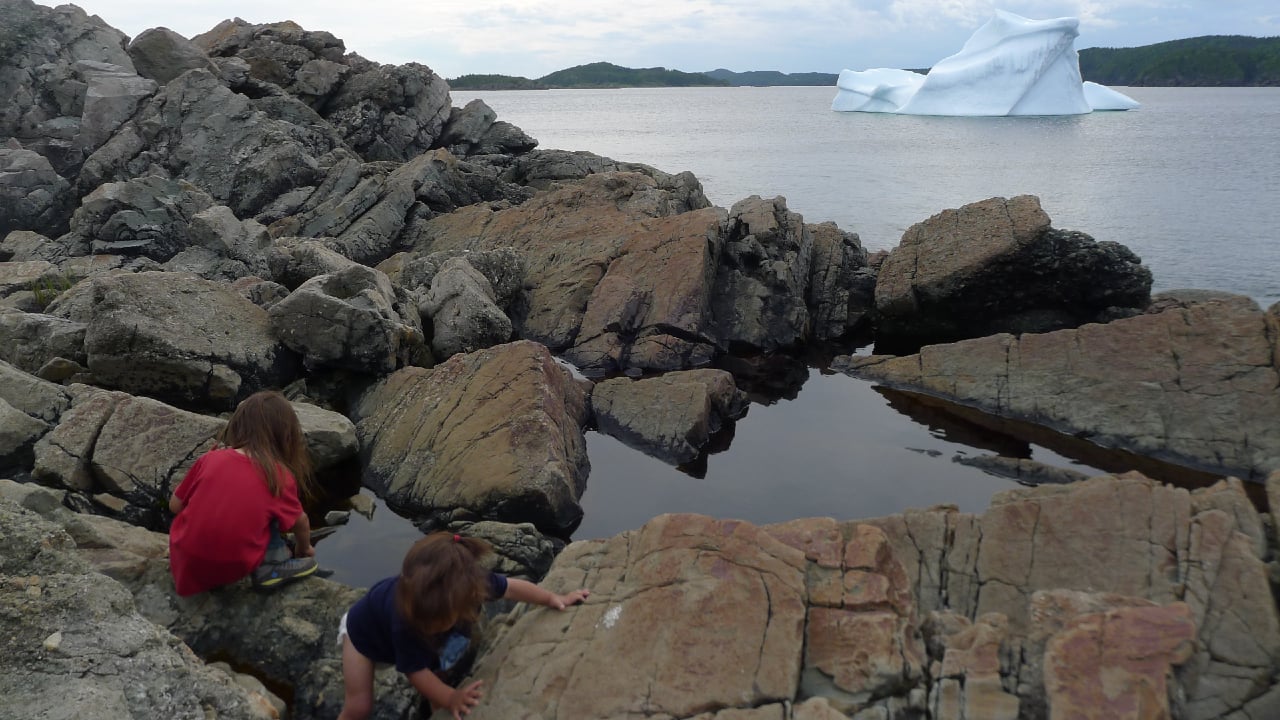
Playing in rock pools after iceberg hunting, NL. Photo: Courtesy of Annie B. Smith
Laugh instead of cry
Some of the things I worried about did happen: The baby cried too much and we had to make extra stops. One day our oldest got food poisoning and we couldn’t pull over to a rest area fast enough, our middle child got carsick all over herself and our youngest peed through his diaper into his carseat. Three kids, three different bodily fluids all in one day. (Hot tip: Keep lots of wipes, wet bags and towels handy!)
In the moment we weren’t our most graceful, but we are here to tell you that one day you will laugh about it. Even in the crazy, children help us see the magic. I danced the baby back to sleep outside our tent before the sun came out more than once but it allowed me to watch a moose and her baby walk by just a few feet away. So yes, meltdowns will happen but you might as well have them on an adventure instead of at home.

 PARENTING TIPS
PARENTING TIPS PREGNANCY
PREGNANCY BABY CARE
BABY CARE TODDLERS
TODDLERS TEENS
TEENS HEALTH CARE
HEALTH CARE ACTIVITIES & CRAFTS
ACTIVITIES & CRAFTS